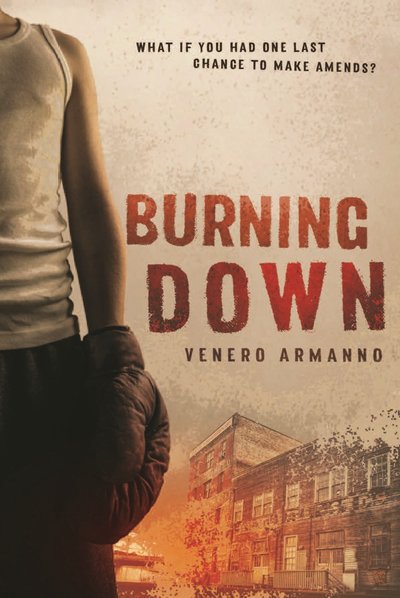Burning Down (UQP 2017), the new novel by acclaimed author Venero Armanno, is a raw and gritty depiction of life in the ‘70’s in Brisbane’s seedy inner heart. Charlie Smoke was once a famous boxer but now he is a bricklayer, building other people’s dreams and fixing other people’s mistakes, with a body that betrays him with its boxer aches and pains. He is a flawed character with a dodgy past, a history that cost him his wife and daughter. By chance he meets Holly Banks, and her teenage son Ricky, and the pair open up in Charlie a vulnerability and a capacity for caring that he had forgotten was there. But Charlie’s old boxing mates and enemies, and the life of gambling, extortion, shakedowns, beatings, murder and payback that he thought he had left behind, catch up to him. He wants to make amends, both for those he’s lost, and for those with whom he wants to make new connections, but his dark past reaches its sticky tentacles into his present and threatens to destroy the new life he yearns to build for himself.
Burning Down is a smouldering novel that dips tantalisingly in and out of the characters’ pasts as they recall the sacrifices – and the betrayals – they made to get to where they are now. It’s a story with many themes. There is a gently developing romance that is all the more poignant because of the rough and tough backdrop against which it sits. There is a commentary about the relationships between fathers and sons, and between fathers and daughters, and also between mothers and sons, that explores the reverence with which the young view their parents, and how this is destroyed by the brutal truths of reality and time. The novel examines bullying, and self-confidence, and how the two are inextricably linked. It features ambition and greed, and what we are prepared to fight for. And it depicts the inevitability of ageing, the frailty of body but not spirit, and how, as we age, our body betrays the dreams of our younger selves. Above all, it is a story about family, about the sacrifices we make for love and honour, the guilt and shame we suffer through failure, and the promises we make to those we care about. The story climaxes with a crescendo of violence and tension that is uncomfortable to read but impossible to put aside.
The setting is quintessentially ‘70’s Brisbane, the dark underbelly of crime and gambling, mixed with sports betting, family business and the migrant experience. The landmarks are familiar, the history authentic and the characters recognisable. The diversity of Fortitude Valley and its surrounds is depicted through the environment, the food and the past-times. Charlie and the others of his generation are men who are getting older but still yearning for the strong, youthful men they once were; the younger characters are struggling to live up to their parents’ expectations and upholding their families’ reputations while staying true to their own values. The characters are empathetic and real, so that the violence and the ugliness, when it comes, is even more poignant and affecting.
This is a story about how old wounds reopen, and how your past catches up with you. It’s also about how help can materialise from unexpected places; how, just when you least expect it, someone you thought unreliable can come through with the promise of salvation. At the centre of the novel is boxing: training, fighting, competing, winning, losing, hurting and triumphing. The book takes grim and ugly subject matter and portrays it in language that is beautiful; it does indeed ‘float like a butterfly and sting like a bee’.

